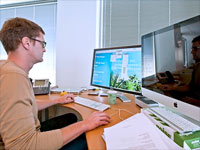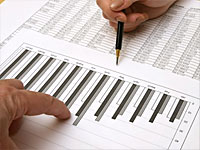

No. 5: New Zealand

No. 4: Australia

No. 3: Finland

No. 2: Denmark

No. 1: Norway











Posted by Ummi at 9:53 AM 0 comments
Labels: travel and living

Posted by Ummi at 6:43 PM 0 comments
Labels: it

Posted by Ummi at 9:56 AM 0 comments
Labels: job, motivation, self improvement
 This week's surprisingly good news that companies went on a hiring spree in December is sure to raise the spirits of the unemployed, underemployed, and everyone else eager to make a move. And if you're in the market for a new job, CareerCast's just-released 2011 rankings of the best and worst jobs is a useful cheat sheet for where to focus your hunt. CareerCast ranks 200 jobs from best to worst based on five broad metrics: Physical Demands, Work Environment, Income, Outlook (Job Growth), and Stress. Here are the overall winners based on their cumulative ratings:
This week's surprisingly good news that companies went on a hiring spree in December is sure to raise the spirits of the unemployed, underemployed, and everyone else eager to make a move. And if you're in the market for a new job, CareerCast's just-released 2011 rankings of the best and worst jobs is a useful cheat sheet for where to focus your hunt. CareerCast ranks 200 jobs from best to worst based on five broad metrics: Physical Demands, Work Environment, Income, Outlook (Job Growth), and Stress. Here are the overall winners based on their cumulative ratings:
Posted by Ummi at 9:52 AM 0 comments
Labels: job

Posted by Ummi at 9:46 AM 0 comments

Posted by Ummi at 10:08 AM 0 comments
Labels: parenting
Waalaikummussalam Ikin,
Thank you for your "long" email . At least you were more eloquent this time, a trait which I think is necessary for an educator. Didn't know that you are a teacher yourself. Welcome to the world of education. For me, it's one, if not the, richest world that I have been, and still are, a world that is immensely satisfying and rewarding.
But again it depends on how we approach our life. Remember I gave that quote "We should like what we do, and not do what we like"? I read somewhere that the best teachers teach from the heart, not from the book. And Carol Buchner did say this of students. "They may forget what you said, but they will never forget how you made them feel." I do believe, as teachers, or a better word, as educators, we should make our students remember us in a good light.
There are times when, as Aristotle said "The roots of education are bitter, but the fruit is sweet". As for the emails, I'm not disappointed or sad at all. That student was being candid with me. Can't blame that student though. I think I have taken much of people's ever busy time. I'm sure the class are not used to receiving my kind of emails, or emails at all, from other lecturers .
I would like to share with you what Hiam Ginott said about being a teacher, or the "power" of a teacher, rather:
"I've come to the frightening conclusion that I am the decisive element in the classroom. It's my personal approach that creates the climate. It's my daily mood that makes the weather. As a teacher, I possess tremendous power to make a student's life miserable or joyous. I can be a tool of torture or an instrument of inspiration. I can humiliate or humor, hurt or heal. In all situations it is my response that decides whether a crisis will be escalated or de-escalated and a student humanized or de-humanized. "
Surprising, isn't it, how we teachers affect our students? It's really food for thought.
Prof. Afifah

Posted by Ummi at 9:41 AM 0 comments
Labels: motivation, self improvement
| Klik Di Sini Untuk Zoom |

Posted by Ummi at 6:21 AM 0 comments

Posted by Ummi at 11:58 PM 0 comments
Labels: info
 Chip Chipman/Bloomberg via Getty Images |
 PhotoAlto/Michele Constantini/Getty Images |
 AP Photo/John Bazemore |
 George Pchemyan/istockphoto |
 Dan Driedger/istockphoto |
 Christian Lagereek/istockphoto |
 AP Photo/Mark Lennihan |
 Jeffrey Hochstrasser/istockphoto |
 Ju-Lee/istockphoto |
 Rafael Ben-Ari/Chameleons Eye/Newscom |

Posted by Ummi at 11:33 PM 0 comments
Labels: Fact
Blog Design by Gisele Jaquenod